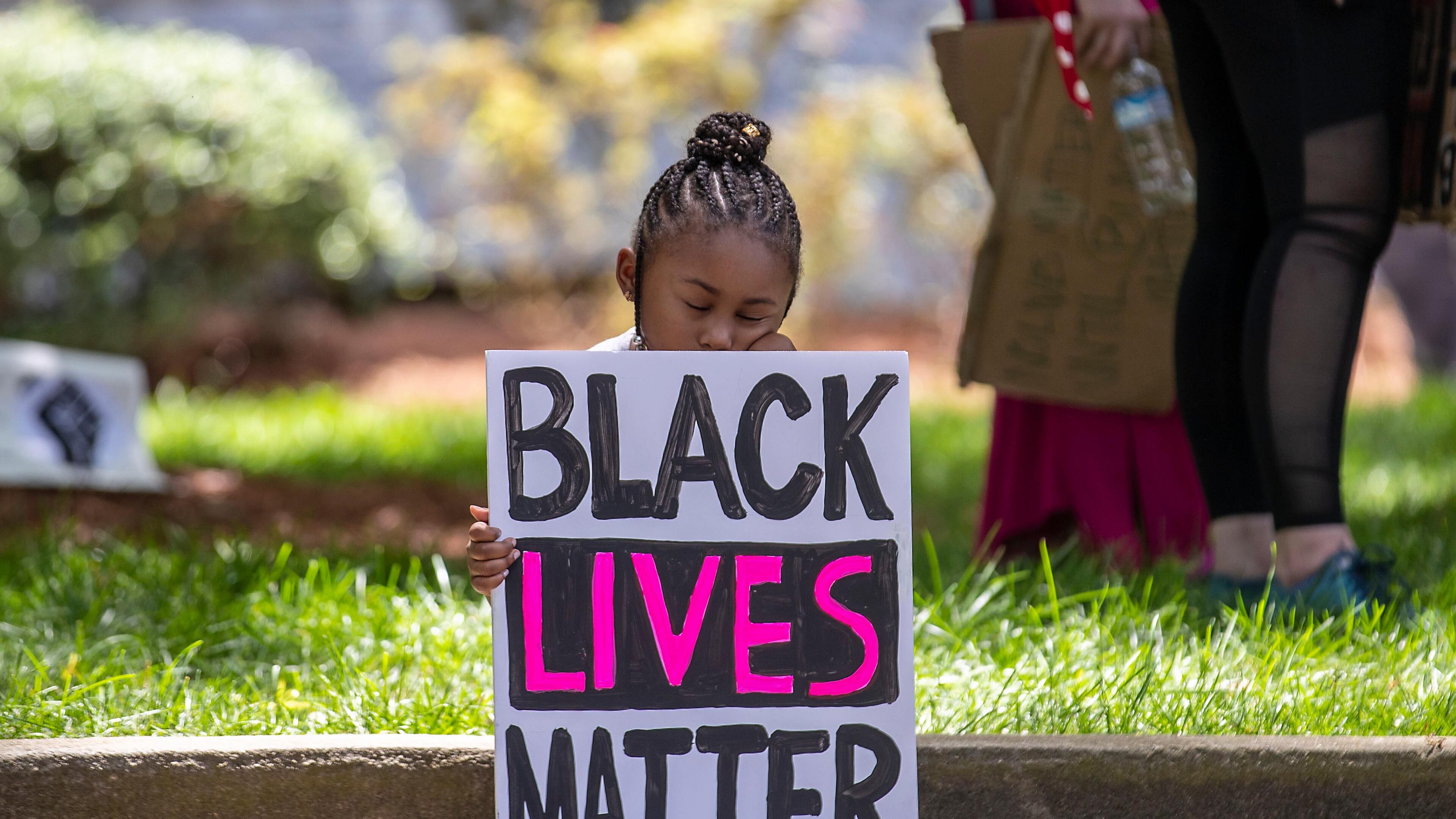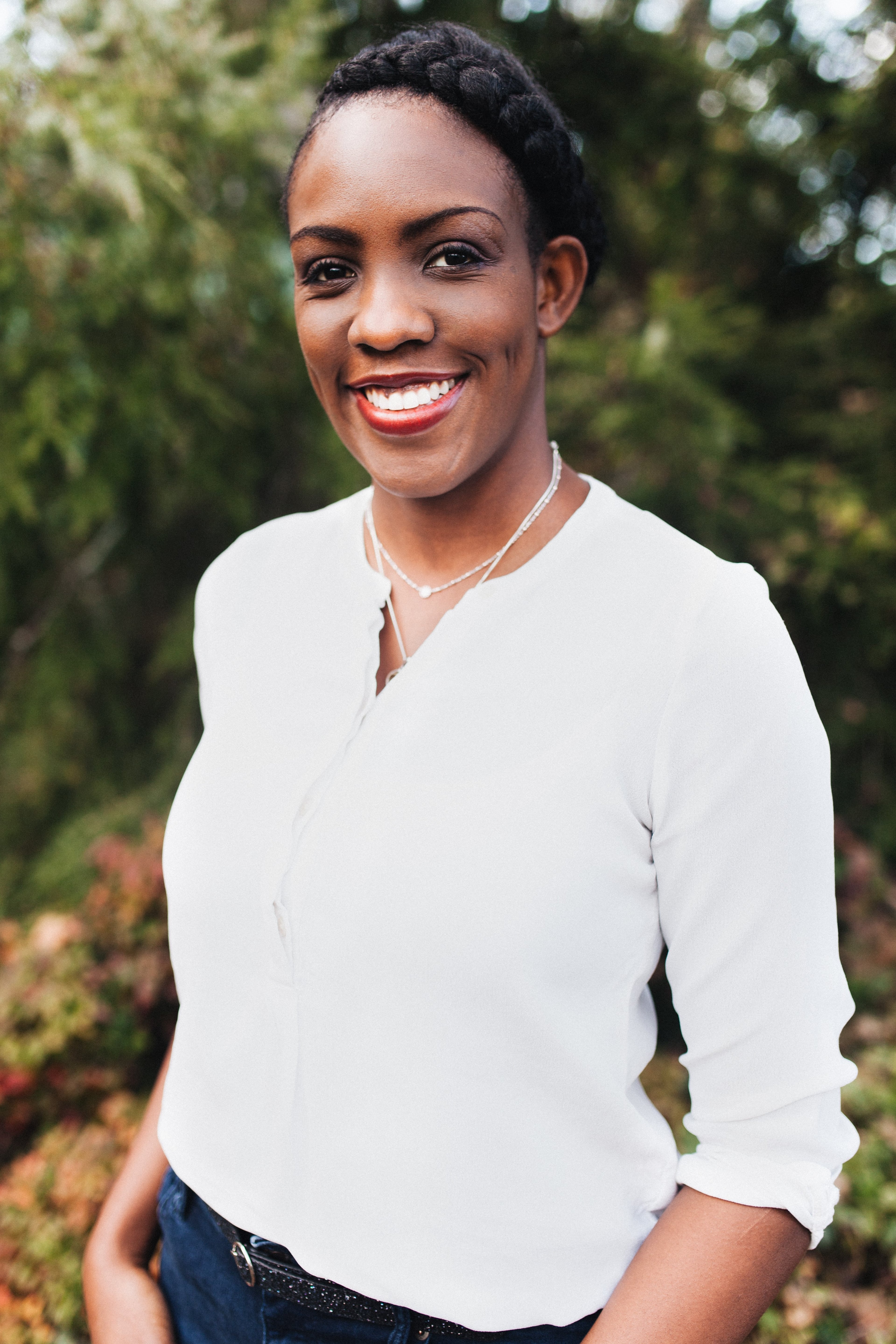A 1999 graduate: Cobb must do better for my child than it did for me

Charis Granger-Mbugua graduated Cobb County Schools, where her young son is now a student.
She wants a better and fuller education for him so he will feel valued, acknowledged and recognized. She wants him to see Black teachers in classrooms, Black writers on reading lists and Black achievements on display.
A National Board Certified teacher and Spelman graduate, Granger-Mbugua says Cobb cannot shirk from examining how race and racism affect its students.
By Charis Granger-Mbugua
In 1999, I was one of roughly 850 Black students who graduated from a Cobb County high school.
Located just 30 minutes north of Georgia’s state capital, Cobb is the third most populous county in the state and boasts the second largest school system.
At the time, I was acutely aware of my blackness, of how the color of my skin made me different from the majority of my peers — more than 4,000 white students graduated from Cobb schools that year, according to enrollment data from the Georgia Department of Education—but I did not have the language to articulate nor the confidence to put to words how that otherness shaped not just my school experience, but on a larger scale, my whole identity.
As I look back on that time, I can count on one hand the number of Black teachers I had from elementary through high school: one. I distinctly remember the difficulties I felt seeing myself reflected in the books we read and the lessons we were taught.
There was no Hurston, or hooks, or Morrison. At no point was I, an overly shy and admittedly insecure Black teenage girl, given an opportunity to pursue rigorous course work, despite my academic abilities. I graduated Summa Cum Laude four years later from Spelman College, and went on to receive a master's in journalism from the University of Maryland.
I had never even heard of an Advanced Placement course while in high school. Why? Why did I feel so untethered and alone as I matriculated through school?
Certainly, there are a myriad of factors that contribute to a student's school experience and ultimate success. As a National Board Certified teacher of 13 years, I can attest to the significance of socio-economics, parental support, intrinsic motivation, and school climate on a child's ability to not just achieve, but excel within a classroom.

As the country turns its attention to issues of racial injustice and systemic racism, I cannot help but believe that an equal amount of attention should be given to those very same issues within the education system.
And now, as a mother of a Cobb County student, I am compelled to take a hard look at systemic racism within the same school district that so greatly impacted me.
On June 7, school board members Charisse Davis and Dr. Jaha Howard hosted a family-friendly rally to highlight systemic racism, police brutality, and the value of Black lives.
The Cobb County School board is comprised of seven members, four of which are white men, and none of whom were present.
Almost one week later, on June 12, the very same school board members who hosted the rally, sent a Call to Action to Superintendent Chris Ragsdale, requesting he implement specific anti-racist strategies, such as seeking “nontraditional solutions for increasing teacher diversity in all schools” and providing “consistent cultural relevancy and bias training for all employees.”
Again, there was no support from the other board members. Only on June 15, 42 days after the horrific video of Ahmaud Arbery's murder went viral and 22 days after the killing of George Floyd, an unarmed Black man at the hands of white police officers, did the superintendent of Cobb County Schools make a statement.
In a letter to "team members," the superintendent acknowledged the pain our communities are feeling and stated that "Board member Scamihorn"—one of the four white board members—had an item regarding a "Resolution Condemning Racism" on the agenda for the board meeting today.
When a draft of Randy Scamihorn’s resolution was made public this week, many were disappointed, myself included, that it still rang hollow. So much so that board member Howard drafted a revised resolution with stronger language that not only named recent Black victims of police brutality, but also committed to “urgent comprehensive action items including: district-wide listening, district-wide learning, and targeted anti-racist programs and policy.”
No mention was made of the previously written Call to Action, nor was there any indication that the Black board members, the ones who by the very nature of their skin color might offer a necessary perspective, were a part of writing that resolution.
But the issue of racism, from subtle acts of racial microaggression to more egregious displays of overt racism, is not new to Cobb County schools. I am not a lone voice, as many have gone before me, in an attempt to have district officials and the school board work honestly to address racial disparities in areas such as teacher hiring (74% of teachers in the district are white, as are 68% of principals and 70% of administrators), disciplinary policies (Black students are 3.8 times as likely to be suspended as white students, according to ProPublica, an interactive database based on civil rights data released by the U.S. Department of Education), and access to advanced and gifted classes or programs (White students are twice as likely to be enrolled in at least one AP class as Black students.)
The group Stronger Together, made up of students, families, educators, and community members in Cobb has championed these issues with minimal action from our district leaders. After I spoke to the board chair, I could not help but feel the lack of urgency regarding the need to address issues of systemic racism in Cobb County Schools.
Politics aside, there absolutely must be an acknowledgment of the impact of race and racism on students of color in our county. Even further, the time has come, as the nation looks at the impact of racism on communities of color, for our district to take bold steps towards ensuring equity for all students.
The time for mere lip service is over. Cobb County Schools cannot continue to tout academic excellence and leadership without addressing the obvious discrepancies in the way students of color are treated.
As the 23rd largest district in the country, we have a responsibility to be innovators and leaders in the national conversation taking place right now. We have a chance to be on the right side of history, as we actively work to rectify systems that have for too long made it difficult for Black and brown students to excel.
And I am no longer the timid 17-year-old girl I was when I graduated from high school more than 20 years ago. I am an educator, a community member, a registered voter, and most importantly, a mother—to a Black son who deserves to be seen, celebrated, encouraged, challenged, supported, and valued by Cobb County Schools.
I will not stop using my voice to ensure that he, along with every other student in Cobb County, is given the very same chance to shine.

